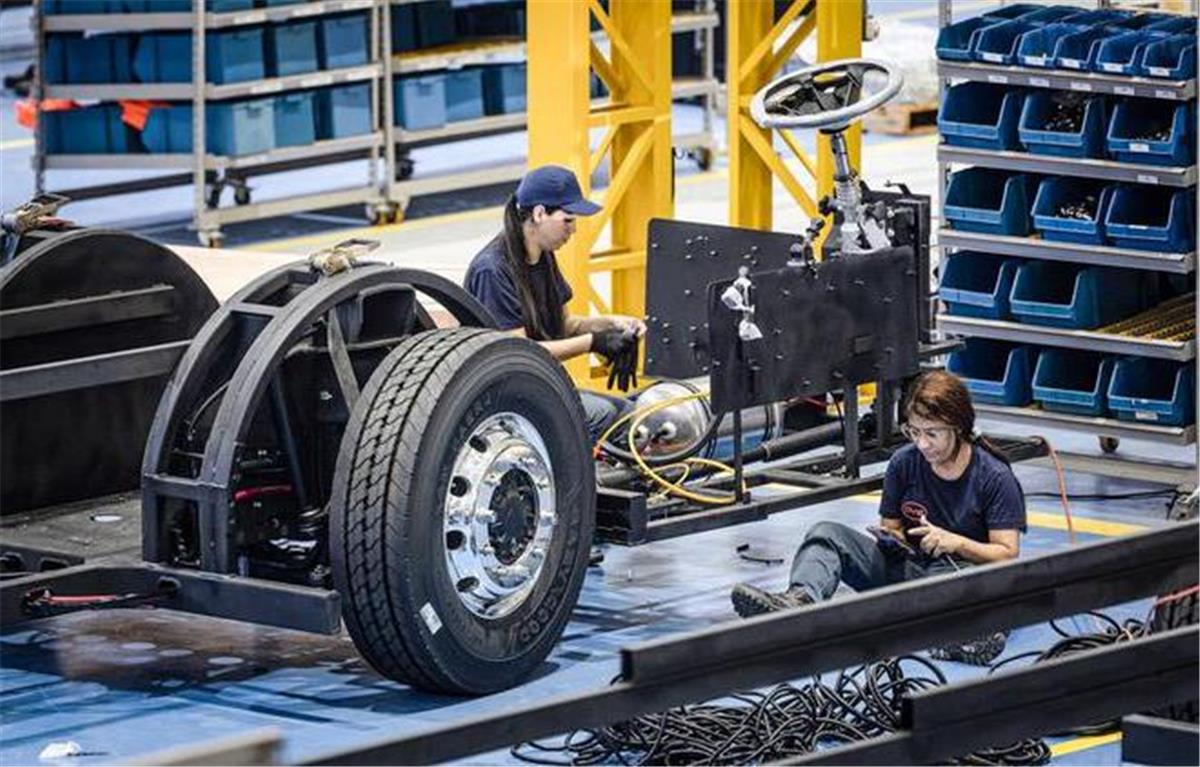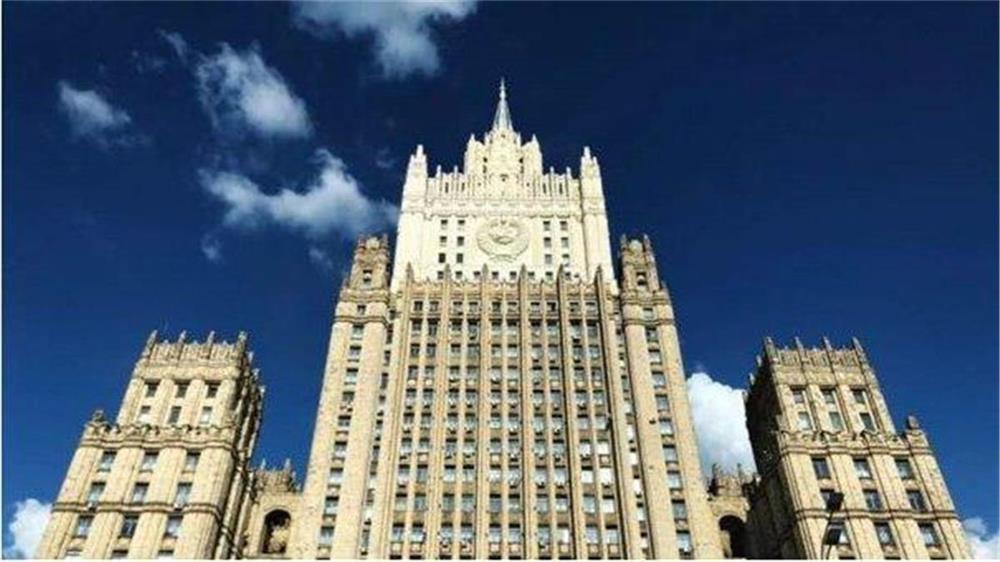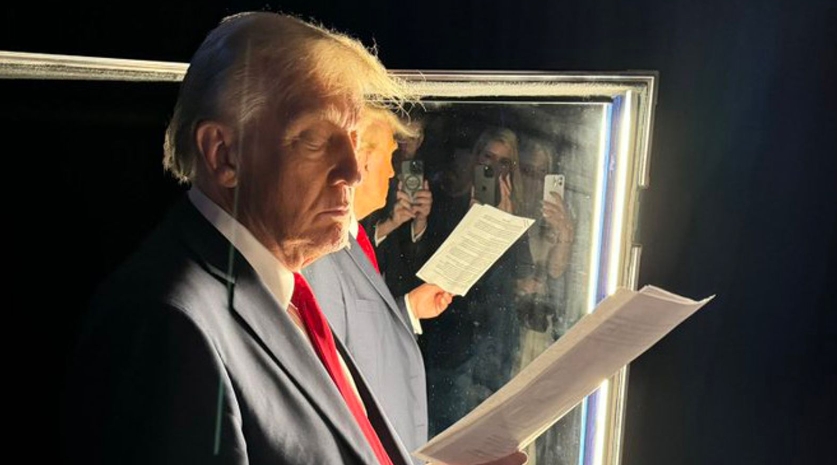BYD Brazil factory workers: the dormitory where they live is a separate building with air conditioning

BRASILIA – On December 23, 2024, the Brazilian Public Labor Ministry (MPT, Ministério Público do Trabalho) issued a statement announcing that they had liberated 163 workers who were "under slave-like conditions," shutting down Chinese automotive manufacturer BYD Auto's accommodation facilities and part of the construction site of its planned installation in the city of Camaçari. The workers are currently accommodated in hotels.
According to the statement, "housing and the construction site that were forbidden from operating will continue to be inoperative until regularization takes place, together with the institutions that compose the work team."
Additionally, the statement mentions that, "the work team for inspection and enforcement, which carried out the actions, is composed of the departments of Public Labor (MPT), Ministry of Labor and Employment (MTE), the Union Public Ministry (DPU), and the Federal Highway Police (PRF). They acted alongside Federal Public Ministry (MPF), and with the support of the Federal Police (PF)."
Brazil's local branch of Golden Group is overseeing the construction of BYD Brazil's factory. BYD released a statement on December 23 of that year, where Alexandre Baldy, the company's senior vice president for its operations in Brazil, said that BYD Brazil had decided to rescind its contract with the construction firm Golder.
On December 26, Weibo's official account for the Golden Group Brazilian branch posted that, "without rhyme or reason, we were suddenly labeled as 'enslaving,' our employees felt like their personalities were insulted, their human rights infringed upon, and the dignity of the Chinese people was severely hurt." Interface news has contacted Golden Group about this story, and their staff was out and unavailable for comment.
On December 28, the Brazilian Ministry of Labor and Employment (MTE), one of the departments that participated alongside others in actions to enforce work regulations, replied to Interface news, "a direct meeting with the employer was conducted on December 27 after completion of the works, and a follow-up meeting on January 7, with involvement from the Public Labor Department."
On December 28, Reuters reported that, according to Brazil's justice ministry, residence permits that had been handed out to Chinese workers could be revoked over the violations that prosecutors found at a BYD factory in Brazil.
Construction workers at the BYD plant in Brazil: "They [the authorities] have been conducting sudden inspections, keeping us up all night, interrogating all of us."
When describing the accommodation facilities where the workers are hosted, the MPT's published article states, "the rescued 163 workers were accommodated in four main places in Camaçari, two on Colorado Street and two on Umbus Street." There is also a fifth accommodation building reserved for a number of workers with administrative jobs that were also inspected, though "due to the administrative nature of the work and despite having identified irregularities, there was no rescue of those workers."
"Right now, China's new energy vehicle industry truly is booming in Brazil; many Chinese companies choose to work with Brazil," said Chinese person living in Brazil Yang Zhengkun (a pseudonym), "But it is understandable [to learn of the incident]. Many of the Chinese companies I've known tend to open plants in remote areas because it's cheaper. There is also the issue of land, as China is short on that and Brazil has plenty; and in these areas [where Chinese companies open their plants], there may be few or no Chinese people around, making it difficult for them to solve their problems."
The article continues by describing that "in one of the accommodations on Colorado Street, workers slept in beds without mattresses, without lockers to keep their belonging and [with their belongings] mixed among food. There were also sanitary problems, with one lavatory being shared by 31 people. Workers also had to wake up before 4 a.m. to wait in lines [for the lavatories] to be able to make it to work on time at 5:30 am.
The MPT also stated that workers experienced a number of work-related accidents: one incident involved a worker who "fell asleep at work from fatigue" after working continuously under the inadequate accommodations and the long, exhausting journey from the worksite. In another "grave case," a worker suffered an eye injury in April, but "[remained with no medical follow-up] despite requesting ophthalmological care."
Liang Sheng (a pseudonym), one of the 163 workers mentioned, is the construction worker featured in Brazilian and Chinese media. Liang worked for China-based company Golden Group for years, and entered Brazil through the Golden Group agency in June 2024. In an interview with Interface news, Liang Sheng says that the events that lead to the MPT's actions began, "around the week of December 19th, when the Brazilian government department [inspector] suddenly inspected our dormitory. It lasted for two consecutive nights, from 6 pm and ending at 11 pm, asking questions about our passports, our arrival in Brazil, and issues related to the payment of workers' wages in front of each worker. Each one was asked.
Liang Sheng denied MPT's accusations of the accommodation's conditions. "The place we were accommodated in was better conditioned than where the locals were accommodated", Liang said, adding that the accommodations were individual houses and equipped with air conditioners. Liang also stated that he was unfamiliar with the situation about 31 workers only having one latrine and denied the claims that working conditions caused exhaustion, leading one worker to fall asleep and suffer an accident at their job.
Concerning workers' wages, Liang said, "I have a contract, and my salary is issued 100% on a monthly basis, and I am paid on a monthly basis, and overseas allowances have been issued on time. They [Golden Group] haven't done anything illegal, and we had not idea that they would treat us like slaves." Another worker stated similarly, "the accommodation conditions were all right, so was everything else… the workers were all Chinese… we had not heard of anyone suffering a work-related accident from being overly-exhausted from working under such conditions." They also denied allegations that passports were being taken from them by the construction company.
The Chinese workers said they do not understand why Golden Group has suddenly come under a government crackdown, as, in recent years, the Chinese market and Brazil's construction sector have experienced rapid market cooperation, with many Chinese enterprises entering the South American country through a third-party agency. According to workers, Golden Group had not done anything "wrong": all workers' wages had been paid 100% on a monthly basis, accommodation conditions "were okay," and they all held passports or temporary passports (TPS).
After the government's move, Liang Sheng stated that, "the whole plant's workers are now being accommodated in two different hotels… [and] all Chinese nationals have gone missing, and we [workers] do not have a responsible person in charge." Regarding what happened next, Liang Sheng said, "the boss, [a representative from the construction agency], had a meeting with the government and returned yesterday afternoon to the hotel… he only said that we had all acted correctly and to not worry," but the next steps are still uncertain.
Another Chinese national named Chen Wei in Brazil had a similar experience with Golden Group. In 2017, Chen went to Brazil to work as a construction worker for four months under a construction company recommended by Golder; however, after working for nearly three months, Chen found himself still waiting for a promised salary, so he turned to the Golden Group office, which gave Chen a small amount of money and said to Chen that they would pay him more once "the government opened the account." However, Chen did not wait around to see if this was true, and left Brazil.
On December 23, BYD issued a statement to the Brazilian government, stating, "It is extremely important to mention that the workers rescued have Chinese nationality" and that BYD Brazil is "deeply concerned about any violation of the applicable labor laws and strictly follows these laws."
In an interview with the Brazilian news agency Globo on December 25, a representative of the Chinese embassy in Brazil, Wang Xiaoling, said that the Brazilian Chinese Workers Association visited the rescued workers' accommodation sites and that "[they found] no evidence of forced labor" and "saw that the rescued workers' passports and wages were all normal, and they did not report any mistreatment by the company to the association." Wang added that Chinese companies "have good employment practices and good benefits for workers and have never used forced labor in their production processes in Brazil."
On December 26, the Golden Group's official Weibo account in Chinese issued a statement in response to what they described as a smear campaign from "certain Brazilian government departments." Golden Group's statement argued, "they [the authorities] have been conducting sudden and late night inspections, keeping our employees up all hours, interrogating all of us without giving any explanation."
It was not immediately clear to Interface news why the company suddenly changed their tone on the situation. The company, whose spokespersons refused to give statements to Chinese and foreign media, was contacted three times but left Interface without a reply.
Regarding Chinese workers in Brazil, Tiago Soares Nogara, a Brazilian who is currently a PhD student researching International Relations and Global Studies at Shanghai University, gave his opinion on Chinese workers in Brazil's construction sectors.
In response to the recent incident at the proposed installation of the BYD plant in the Bahia area of Camaçari, Nogara told Interface News that "[The Brazilian constitution] provides all workers strong legal [worker protection measures] in the Brazilian Labor Code (CLT). This guarantees formal contracts, a maximum 44-hour work week (on average), overtime (which must be paid in cash), paid vacations, and the famous '13th salary' [Brazil's mandatory extra month's wages at the end of the year]. They are also guaranteed social benefits and, most notably, a severance package in the event of unfair dismissal.
Nogara further added that this legal framework extends to Chinese enterprises as Brazilian and foreign companies operating in Brazil must comply with these laws. The issue is less about a lack of legal provisions and more [that the Brazilian government often does not] strictly enforce regulations, including those related to working conditions and rights for Chinese employees. "For this reason," the Brazilian government will often crack down on certain companies to show society that [it is] serious about [its enforcement of] the law.
According to Nogara, this issue is not unique to China, "other foreign companies have violated Brazilian laws, just like the Chinese companies that have been caught. Brazilian [companies and organizations] are more aware about violations by the Chinese… [because of] racial and civilizational [differences]." Nogara says that if it wasn't for racism from a small section of Brazilian society, the issue likely would not have been raised.
Regarding Chinese workers in Brazil, Nogara says that the Brazilian Labor Code states that foreign companies must give priority to hiring Brazilian nationals; that means that they can only hire foreign nationals for highly specialized positions, and Chinese people in Brazil are typically "employed to teach technology [to Brazilians] or serve as a means of communication" between the company in Brazil and China. In addition, Nogara argues that these workers are typically employed based on an agreement that is often reached at the level of state governors, not with the Brazilian federal government, so the federal government is often unaware of the agreement, and the company in Brazil may hire foreign nationals without informing relevant authorities.
Regarding what may occur next, according to the MTE, after the work of rescuing the Chinese workers in Camaçari, a series of "direct meetings with the employers responsible" is planned, scheduled for December 27 and January 7, "with the participation of the Public Labor Department, which also took part in the operations." It was not known what measures would come from these meetings.
BYD's Brazilian plant: Chinese capital expands in Latin America
BYD has been attempting to expand into the Latin American country of choice in recent years. In July 2023, Brazilian newspaper Agência Brasil reported that BYD, together with the Brazilian state government of Bahia, announced that BYD would be investing $3 billion Brazilian reais ($514.4 million) to build large local manufacturing and industrial complexes in Camacari, Bahia. Construction on the plant began in the second half of 2023, and it was initially set to commence commercial operations in the second half of 2024. Once complete, the complex would provide 5,000 jobs in a country with one of the lowest per capita GDPs in the region.
Furthermore, by 2025, according to data from Brazil's vehicle registration and licensing authority (Renavam) and Brazilian auto dealership association (Fenabrave), BYD has already overtaken Tesla to become the largest electric car brand in the country. BYD is currently expanding rapidly, with sales of their new energy vehicles expected to account for 93-98% of the Brazilian market in 2024. According to the Wall Street Journal report, this is the highest market share that any one brand has held in Brazil's nascent electric-car market.
BYD is now considered a synonym in Latin America for "Made in China," and its Brazilian plant has quickly became the flagship project of Chinese capital in Latin America. BYD, along with Hesteel and Chongqing Iron and Steel, have established a steel processing base in Brazil to further develop in South American region, marking China's most significant investment in South American construction materials industry. According to Brazilian magazine Exame, these plants could "end steel imports from Asia," and that "the steel industry is becoming more important, [and will] soon become the biggest [in the region]."
In addition, Chinese investments like this have also "revitalized the Brazilian economy," says Nogara. Since Lula returned to the Brazilian presidency in 2023, China, he explains, "had invested in several sectors of the former world power." This has led to the Brazilian public viewing these economic ties positively. According to Nogara, 67.1% of Brazilians are now aware of Chinese investments, and of those aware of China's presence in Brazil, 60.7% of Brazilians hold favorable views (up from 57.3% and 41.5% respectively in February 2023).
Regarding Chinese and Brazilian cooperation, Nogara stated that, despite China being one of Brazil's top trade partners, "[there remains] a lot of misunderstanding," especially among those "who oppose deepening relations with China." This is because, Nogara argues that, "they [the Brazilian opponents] know that [with more trade] the middle class has a higher propensity to consume [Chinese products]," and "they are afraid that [with trade growth] China will take [Brazil's] jobs and hurt Brazilian people."
 Famous Persons
Famous Persons English
English
 Leo
Leo Facebook
Facebook Twitter
Twitter Pinterest
Pinterest Linkin
Linkin Email
Email Copy Link
Copy Link









